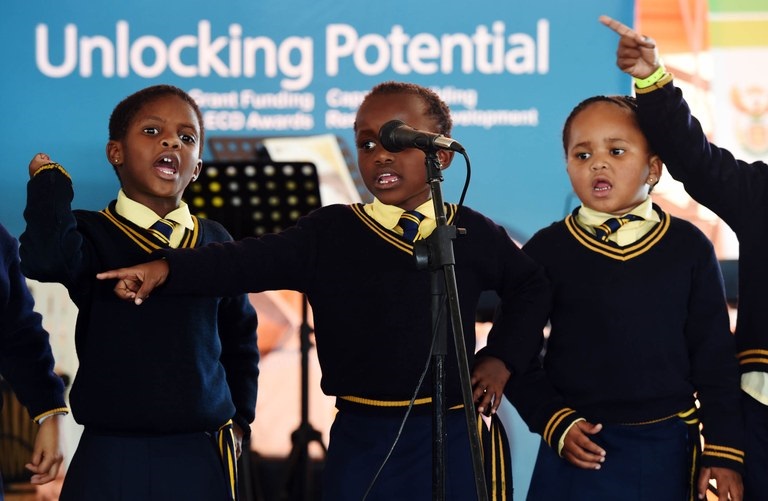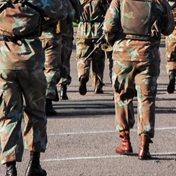
A debate in the National Council of Provinces on the challenges facing farm learners quickly escalated into a political wrestling match between provinces and also confirmed there are no easy solutions to these challenges.
ANC MP Landulile Dlamini said that addressing the challenges in farm schools would take time “because of the unfortunate apartheid tendencies” that still remained.
The Economic Freedom Fighters (EFF) agreed, calling learners on farm schools among “the most vulnerable in our society”.
EFF MP Nkagisang Mokgosi said these learners and their families faced “slave-like conditions” on a daily basis but were living in constant fear of being evicted.
“You cannot expect proper learning under such conditions.”
Democratic Alliance (DA) member of the Western Cape legislature, Basil Kivedo, told MPs it was common knowledge that children in farming communities were among the most vulnerable.
Addressing learner problems in farming communities, he said, required a multidisciplinary approach.
Despite the politicking, most of the MPs expressed concern over the persistent challenges. Some mentioned poor facilities where the whole school was sometimes just one big room, buildings were dilapidated and in some of the very poor areas one teacher was responsible for teaching pupils from Grade R to Grade 2.
The ‘lucky’ ones
The conditions matched the research findings of a study the Women on Farms Project undertook a few years ago on farms in the Boland and Grabouw areas.
Some of these findings showed that children living on farms experienced a range of educational problems mostly due to their location and socioeconomic conditions.
The main challenges were transportation – many of these pupils had to spend more than an hour walking to school in all weather conditions, the study found.
Back then the organisation demanded the government amend the five-kilometre transport policy for rural schools.
Not a lot has seemingly changed for some schools since then.
The principal of Keisie VGK Primary School, Serone Benjamin, told ParlyBeat the school had lost a Grade 2 pupil who died in an accident while crossing one of the major roads on her way to school. A white remembrance cross remained at the side of the road.
According to Benjamin the local traffic department has supported the school with more visible neon-coloured caps and bands for the pupils to wear on their way to school.
The school had 154 pupils, she said, and four teachers who operated at multigrade level because each of them taught two grades in one.
“The workload is too much and the pupils suffer because teachers cannot get to everything.”
Benjamin also questioned the five-kilometre transport policy.
“Having to walk four kilometres is already very far for a small child to walk. It is the distance from the main road that is used to determine kilometres yet most of these children live on farms where the houses are very far from the road.”
Despite this and the odd water problem, the school was still among those better off, according to Benjamin. They had a lot of support from the community.
A national problem
Basic Education Minister Angie Motshekga concurred that the challenges farm schools faced was a national problem.
According to a departmental report of 2015, there were 8192 rural schools in the education system. The bulk of these schools were located in the Eastern Cape, Limpopo and the Western Cape.
She referred to the Eastern Cape, where schools also had to be closed down due to low enrolment rates and because they were “expensive and not viable to sustain”. Motshekga admitted that there might be factors that would require the department to reconsider some of its criteria.
“We agree there is a need to improve the quality of education in rural areas. We will have to define what we classify as a rural school, review recruitment and retention problems in these schools and look at resourcing,” she said.
According to her, the department would have to look at these schools that were pedagogically unsustainable and work with provinces. She said due to increased urbanisation these schools were getting smaller, unviable and very expensive.
“It’s a major economic burden but we are doing all we can.”
She referred to some provinces that had already embarked on a process of rationalisation.
“It is a very difficult process as we’ve seen in the Western and Eastern Cape as the communities oppose the closures and create problems for the sector. The models carry costs and social problems but at the same time we also cannot always assume small schools must close as there is sometimes no alternative.”
In the Eastern Cape, four farm schools had challenged Motshekga and her department in court over the decision to close these schools and there were similar cases in the Western Cape. These communities often claimed they were not properly consulted on the matter. Motshekga said because rural areas became less populated there were always pupils who remained and needed schooling.
She conceded during the debate sometimes “a school with 20 pupils on a remote farm is sometimes better than transporting those pupils daily elsewhere or placing them in boarding facilities”.
Doomed if we do, doomed if we don’t
The minister also told MPs that provinces had different models of dealing with these smaller schools and some of them were “socially problematic”.
“In Mpumalanga, for example, the response was to build bigger boarding schools. It is a viable option for high school kids, but you can’t socialise small kids like that. A small child is better off with the poorest mother than in an institution because it has long-term social problems,” she explained.
“There are good interventions but you cannot institutionalise children too early as they must grow up with families. So, we have this major problem – doomed if we do and doomed if we don’t.”
Rural schools in South Africa (2015)
Source: Department of Basic Education Progress Report on Rural Education
. This article first appeared in ParlyBeat




 Publications
Publications
 Partners
Partners








